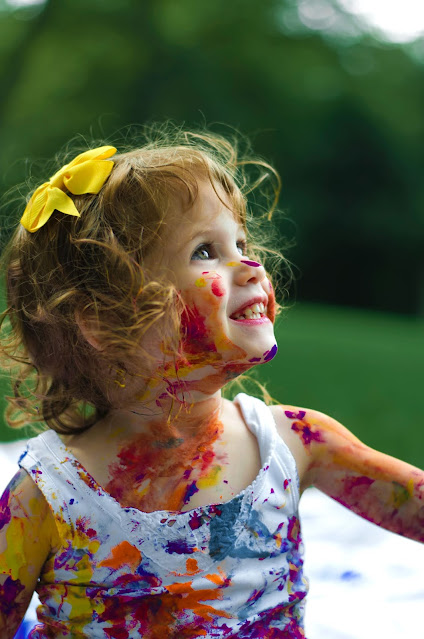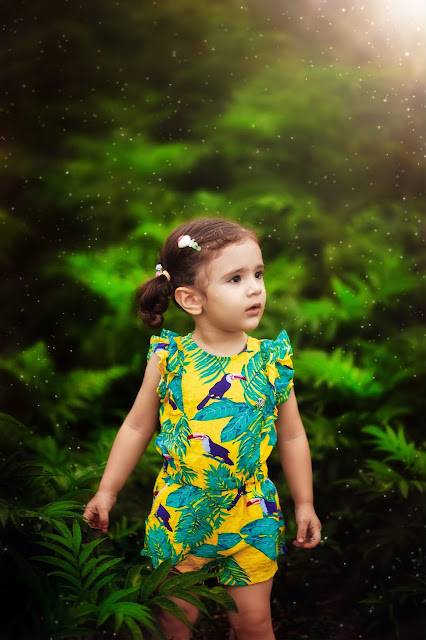We raise children to make them a splitting image of us. However, are children born with their own personalities? Is it nature or nurture that comes into play? Let’s find out.

Two months ago, I read an insightful article where the writer suggested that raising a child is the responsibility of parents. He also emphasized the role of nurture in the mental and physical development of children.
I realized the significance of raising a child and the importance of parents in the overall development of children. The article provided me with a lot of insights regarding children’s personalities.
However, there is one thing that has always sparked my mind. I do not know whether it is real or not, but chances are it is. Does nature have a significant role in determining children’s personalities?
I know it sounds idiotic and immature. How can children have their personalities without knowing anything about the world? They cannot be born with an encyclopedia in their minds? After all, knowledge is one of the bases of personality development.
However, the claim that parents are the only ones who impart personalities to their children seems misleading and partial. The outer world also has a huge role to play in personality development.
So, “What is the truth behind a child’s personality?”
“Are children born with their personalities?”
Well, we can never know until we find out.
What do children’s personalities say about them?
Children are not as complex as adults. You will always be amazed by their simplicity and straightforward approach to things. A great amount of innocence lies in their childlike rose-colored glasses, which help them imagine things vividly.
Children indeed have a very rich and fascinating mind full of imagination and ideas. I would even say that children are the most creative of all ages. However, they do not know how to bring it to fruition.
But, no one can influence a child with imagination alone. He needs to understand and experience things without anyone telling him to do things a certain way.

Therefore, we need to find out what children’s personalities say about them.
Here, are 3 important facts about children’s personalities.
1. Children are highly receptive to their environment, which influences their personality:
Children learn from their environments. Many details and facts, and other important things, are absorbed in the early stages of childhood. The ways to deal with people while maintaining social harmony are vital for overall development.
They are highly receptive to things around them and often have a curious bone to seek knowledge about them. Many things like fear and awareness are unknown to them.
Hence, their receptivity to their environment is responsible for their diverse personality traits.
2. Children are very sensitive to their relationships with parents, which also influences their personality:
Parents are the only people who can raise a naive child and innocent into a well-rounded individual. A lot of care and nutrition are necessary for good physical development.
However, children are also very sensitive to their relationships with their parents, which is vital for their moral and behavioral development. It is only through parents that a child learns to have his principles, values, and beliefs.
Therefore, children learn a lot from their relationships with their parents, which in turn influences their personality.
3. Children are highly individualistic, which also influences their personality:
Individualism is a trait that a person has throughout his life. It is one of the basic requirements for the development of children’s personalities. Children are always fond of their own needs and requirements.
Individualism in adults is largely confused with narcissism. However, children have no such narcissistic traits in them. They just prefer to understand themselves better with time. Children who are often shy and quiet are highly individualistic and have good intrapersonal skills.
Hence, children are highly individualistic which also influences their overall personality development.
So, these are the three important facts about children’s personality development.
But, what we need to know is whether children are born with their personalities or not.
Therefore, let’s find out in the next section, whether children are the product of nature or nurture.
Are children born with their own personalities?
So, let’s come to one of the most important debates in recent years about children’s personalities. Many psychological research areas have emphasized the importance of determining children’s personalities at a tender age.

Besides, children of the present age have complex personality traits due to easy access to knowledge and education. Some of them have even been diagnosed with different personality disorders such as ADHD, Schizophrenia, post-traumatic stress disorder, etc.
The growing complexity of children’s psychology is both a matter of interest and concern. It is evident that shortly children would be as knowledgeable as adults and might gain more experiences than children of today.
But, “Are children born with their personalities?”
Well, here are 5 eye-opening truths about children’s personalities that people, especially parents, need to know.
1. Personality is influenced by genetics:
“Do you think children’s personalities are shaped only by their environment?”
Well, there is more to it than meets the eye.
In recent studies, researchers have proved that personality is 40% influenced by genetics, 40% by raising or upbringing, and 20% by external sources of environment.
The personalities of children may differ less or greatly from that of their parents. However, it all depends on how the children are raised by their parents. The behavior depends on one’s environmental conditions too.
Hence, personality is influenced by genetics.
2. Children adopt their parent’s personality traits:
I think this is a thing most parents have observed themselves when raising their children. Personality traits can be adopted, and children do it the same way their parents did in their childhood.
However, children adopt their parent’s traits differently. In other words, a child might adopt one of the dominant traits of one parent and one of the weak traits of the other. It is not to say that all children are the same, but this is a general observation.
Therefore, children adopt their parent’s personality traits and make them their own.
3. Children do not adopt their parent’s teachings the same way:
At a very young age, I realized that my parent’s teachings have always been what I have learned since I was a toddler. However, the way I applied them in my life is different.
I have always seen the world from a different perspective. However, I have always used the same teachings my parents taught me. For instance, my father taught me to be more structured and careful with my plans. But, I did not adopt it in my immediate plans. Instead, I used it in my long-term plans.
Hence, a child might adopt a parent’s teachings but not the same way they do. They would use them according to their own will and understanding.
4. Some children might appear wiser than their parents:
This is the tendency of children of the modern era. Many children are well-versed in multiple fields of knowledge and education. The Internet has made everything available to them in one place.
Nowadays, children are a lot more engaged in their phones and laptops, which, to be honest, is causing more damage than usual. However, online forums such as Quora, Reddit, and Tumblr have amazing information about many things that can make children seem wiser than adults.
So, to sum up, children might appear wiser than their parents but they are not any more than them.
5. Lastly, children now experience varied forms of emotional abuse and torcher:
Emotional abuse and torcher at a very young age can destroy a child’s innocence and goodwill at a very young age. In recent years, the cases of abuse and torcher of children have increased drastically.
The treatment of many children at the hands of their parents is responsible for their machiavellian and narcissistic traits making their personalities even more complex. Such children score high in neuroticism and emotional instability too.
Therefore, emotional abuse and torcher are also responsible for increasing complexities in children’s behavioral traits and personalities.
Final Words:
To sum up, children might have some inherent personality traits of their own which are refined by upbringing and mingling with society. Moreover, the complexities also depend on many factors mentioned above.
However, we might find the real deal about personality traits as soon as we begin to understand the effects of reality on children’s psychology.
